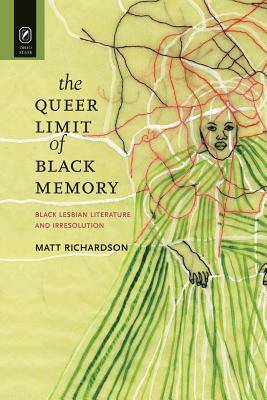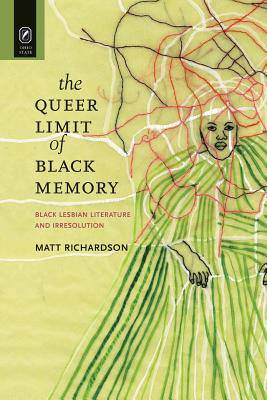
- Afhalen na 1 uur in een winkel met voorraad
- Gratis thuislevering in België vanaf € 30
- Ruim aanbod met 7 miljoen producten
- Afhalen na 1 uur in een winkel met voorraad
- Gratis thuislevering in België vanaf € 30
- Ruim aanbod met 7 miljoen producten
Zoeken
€ 50,95
+ 101 punten
Omschrijving
The Queer Limit of Black Memory: Black Lesbian Literature and Irresolution identifies a new archive of Black women's literature that has heretofore been on the margins of literary scholarship and African diaspora cultural criticism. It argues that Black lesbian texts celebrate both the strategies of resistance used by queer Black subjects and the spaces for grieving the loss of queer Black subjects that dominant histories of the African diasporas often forget. Matt Richardson has gathered an understudied archive of texts by LaShonda Barnett, S. Diane Adamz-Bogus, Dionne Brand, Sharon Bridgforth, Laurinda D. Brown, Jewelle Gomez, Jackie Kay, and Cherry Muhanji in order to relocate the queerness of Black diasporic vernacular traditions, including drag or gender performance, blues, jazz, and West African spiritual and religious practices. Richardson argues that the vernacular includes queer epistemologies, or methods for accessing and exploring the realities of Black queer experience that other alternative archives and spaces of commemoration do not explore. The Queer Limit of Black Memory brings together several theorists whose work is vital within Black studies--Fred Moten, Saidiya Hartman, Hortense Spillers, Frantz Fanon, and Orlando Patterson--in service of queer readings of Black subjectivity.
Specificaties
Betrokkenen
- Auteur(s):
- Uitgeverij:
Inhoud
- Aantal bladzijden:
- 216
- Taal:
- Engels
- Reeks:
Eigenschappen
- Productcode (EAN):
- 9780814252901
- Verschijningsdatum:
- 1/06/2016
- Uitvoering:
- Paperback
- Formaat:
- Trade paperback (VS)
- Afmetingen:
- 152 mm x 229 mm
- Gewicht:
- 322 g

Alleen bij Standaard Boekhandel
+ 101 punten op je klantenkaart van Standaard Boekhandel
Beoordelingen
We publiceren alleen reviews die voldoen aan de voorwaarden voor reviews. Bekijk onze voorwaarden voor reviews.











